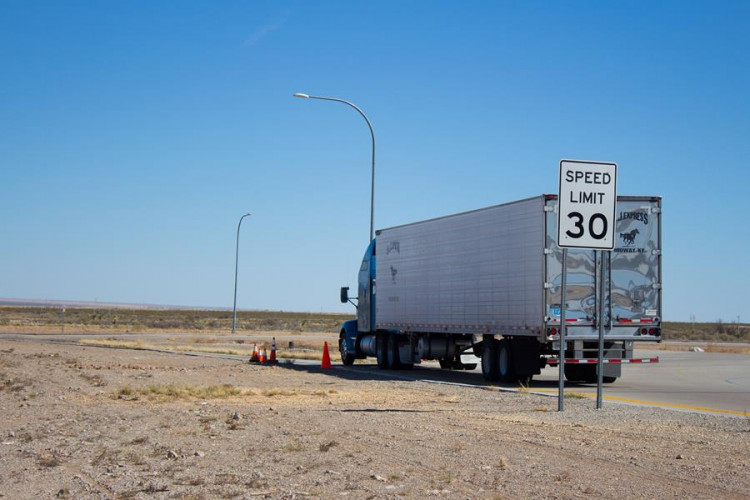One of America's oldest trucking firms, Yellow, with 99 years in operation, has declared bankruptcy, leading to the loss of 30,000 jobs.
Due to an overwhelming debt, including a federal relief loan and an ongoing deadlock with the labor union, the renowned trucking company announced its closure on the evening of August 6.
The company had been grappling with debt amassed from a series of mergers and a $700 million federal relief loan during the COVID-19 pandemic. As of July 30th, the company had already shuttered operations and laid off a significant portion of its workforce.
The collapse results in 30,000 job losses, including 22,000 members from the International Brotherhood of Teamsters. This marks the most significant layoff in the history of the U.S. trucking industry, both in terms of job numbers and revenue loss.
Yellow seeks bankruptcy court authorization to pay outstanding salaries and benefits to its workers.
Darren Hawkins, the company's CEO, mentioned his disappointment in Yellow's decision to close after nearly a century in business. Hawkins also shared that the company plans to fully repay the federal loan received in 2020. The Trump administration had authorized this loan, believing that Yellow played a pivotal role in national security as one of the transportation providers for the U.S. government.
Whether the federal government can recoup this loan might depend on how much money Yellow can raise by selling its real estate and other assets. However, some U.S. lawmakers and analysts suggest that Yellow might not be able to repay this loan, leaving American taxpayers to foot the bill. As part of the relief program, the U.S. Treasury holds a 30% stake in Yellow, a share that might now be wiped out.
Yellow's stock price was approximately $2.7 per share in July 2020 when it received the federal loan. Surprisingly, the stock price soared to almost $4 last week as the company began winding down operations. However, following the bankruptcy protection application, Yellow's stocks opened much lower on Monday, dropping over 40% but later narrowed down to less than a 20% decline.
Founded in 1924 and headquartered in Nashville, Tennessee, Yellow Roadway Group once boasted an annual revenue of $9.5 billion, operating over 12,000 trucks and serving more than 800,000 clients worldwide. Fortune magazine had consecutively named Yellow as the top and most admired company in the transportation sector for three years.
In its bankruptcy filing, Yellow listed 30 unsecured creditors, including BNSF Railway owned by Warren Buffett, e-commerce giant Amazon, and U.S. home improvement leader Home Depot.
Yellow, known for its affordable rates, has been transporting goods nationally for Walmart, Home Depot, and numerous other small businesses. Over the past two decades, the company faced several bankruptcy threats. It narrowly averted bankruptcy in 2010 when its truck drivers agreed to wage and benefit cuts.
In the years leading up to the pandemic, the company aggressively expanded by acquiring competitors. For the past 15 years, the union consistently made concessions, and in 2020, during the height of the pandemic challenges, the company received federal assistance. However, this year, with reduced transportation demand and a stringent union stance, the company found itself in hot water.
This spring, the union thwarted Yellow's proposed operational reforms, causing a loss of clients and business. Additionally, the company struggled to refinance approximately $1.3 billion in debt set to mature in 2024. By the end of the first quarter, Yellow owed around $700 million to the federal government and over $500 million to the private equity firm Apollo Global Management.
Earlier this month, Yellow averted a strike threat from 22,000 union-represented workers, pledging to pay over $50 million in overdue worker benefits and pensions.
Hawkins attributed the company's bankruptcy to the union, stating that they faced months of stubbornness, bullying, and deliberately destructive strategies from the union.
In response, the union commented on the unfortunate bankruptcy, labeling it a sorrowful day for the workers and the American freight industry.





